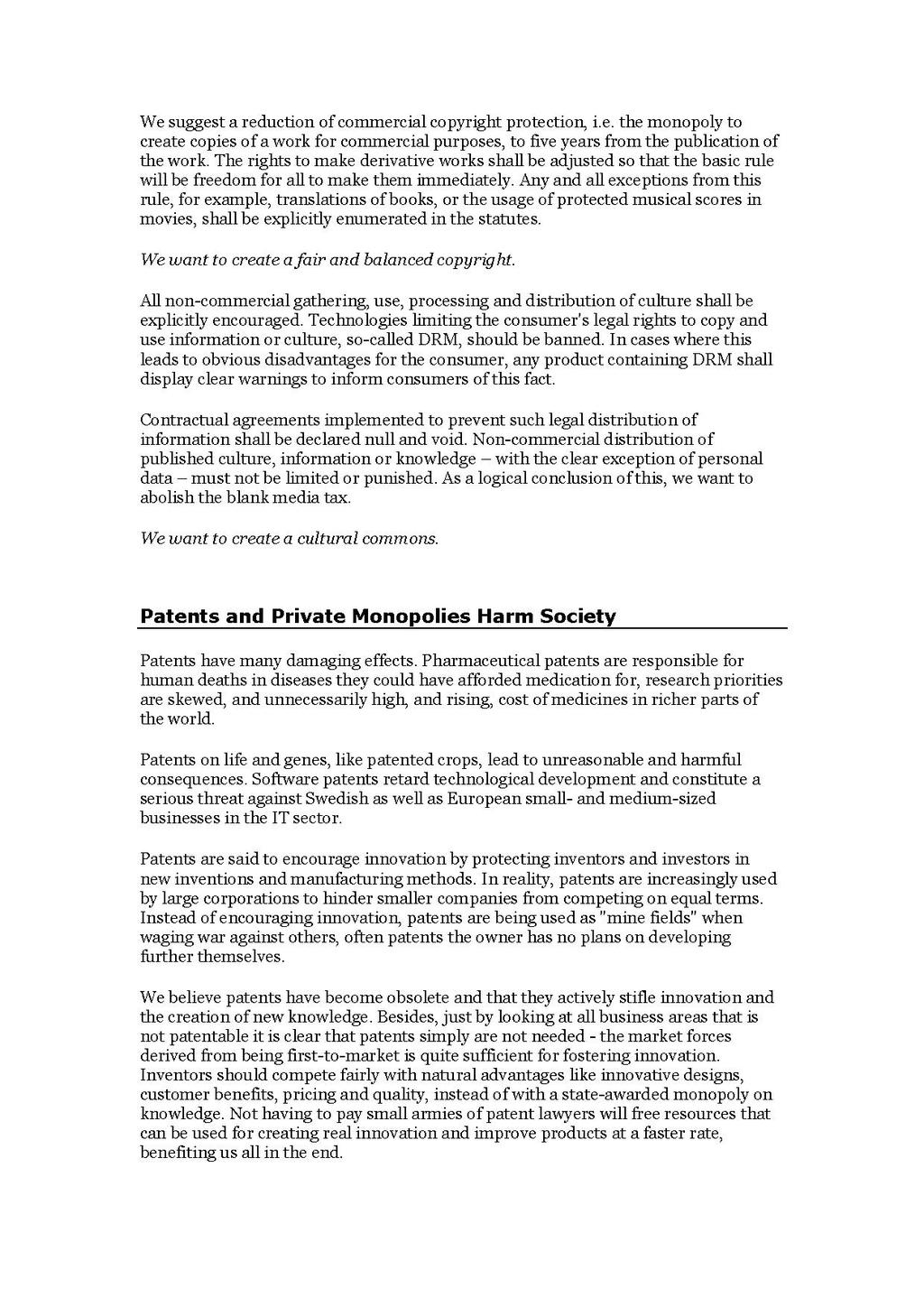We suggest a reduction of commercial copyright protection, i.e. the monopoly to create copies of a work for commercial purposes, to five years from the publication of the work. The rights to make derivative works shall be adjusted so that the basic rule will be freedom for all to make them immediately. Any and all exceptions from this rule, for example, translations of books, or the usage of protected musical scores in movies, shall be explicitly enumerated in the statutes.
We want to create a fair and balanced copyright.
All non-commercial gathering, use, processing and distribution of culture shall be explicitly encouraged. Technologies limiting the consumer's legal rights to copy and use information or culture, so-called DRM, should be banned. In cases where this leads to obvious disadvantages for the consumer, any product containing DRM shall display clear warnings to inform consumers of this fact.
Contractual agreements implemented to prevent such legal distribution of information shall be declared null and void. Non-commercial distribution of published culture, information or knowledge - with the clear exception of personal data - must not be limited or punished. As a logical conclusion of this, we want to abolish the blank media tax.
We want to create a cultural commons.
Patents and Private Monopolies Harm Society
Patents have many damaging effects. Pharmaceutical patents are responsible for human deaths in diseases they could have afforded medication for, research priorities are skewed, and unnecessarily high, and rising, cost of medicines in richer parts of the world.
Patents on life and genes, like patented crops, lead to unreasonable and harmful consequences. Software patents retard technological development and constitute a serious threat against Swedish as well as European small- and medium-sized businesses in the IT sector.
Patents are said to encourage innovation by protecting inventors and investors in new inventions and manufacturing methods. In reality, patents are increasingly used by large corporations to hinder smaller companies from competing on equal terms. Instead of encouraging innovation, patents are being used as "mine fields" when waging war against others, often patents the owner has no plans on developing further themselves.
We believe patents have become obsolete and that they actively stifle innovation and the creation of new knowledge. Besides, just by looking at all business areas that is not patentable it is clear that patents simply are not needed - the market forces derived from being first-to-market is quite sufficient for fostering innovation. Inventors should compete fairly with natural advantages like innovative designs, customer benefits, pricing and quality, instead of with a state-awarded monopoly on knowledge. Not having to pay small armies of patent lawyers will free resources that can be used for creating real innovation and improve products at a faster rate, benefiting us all in the end.

